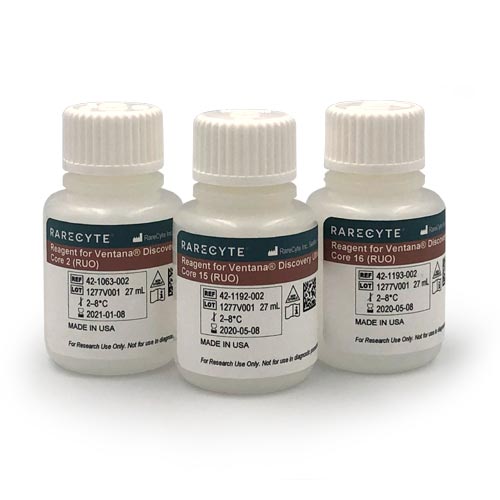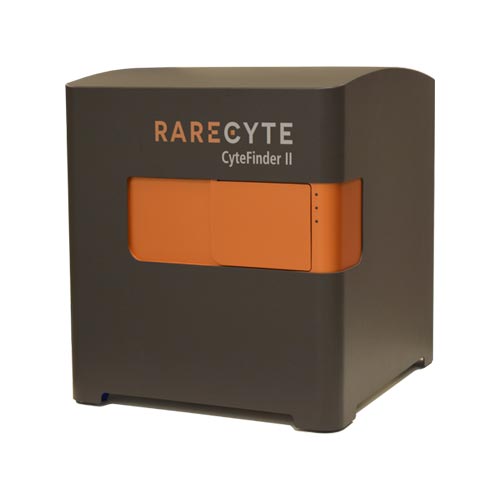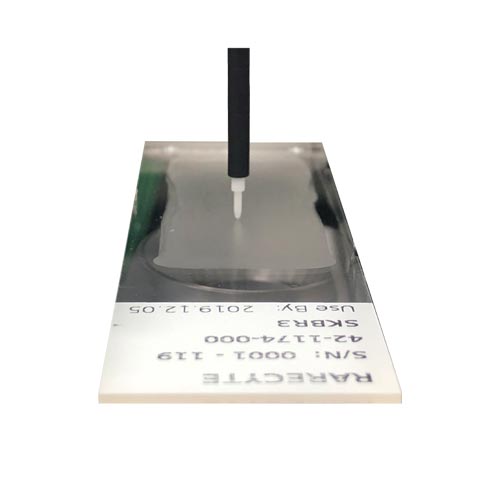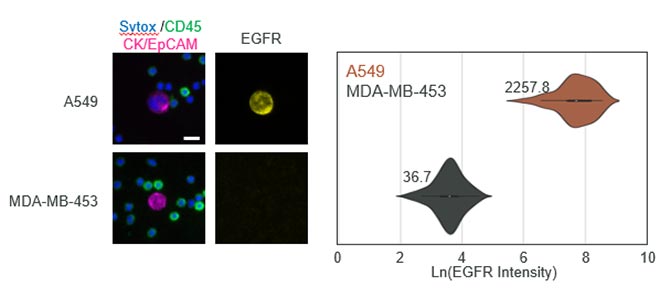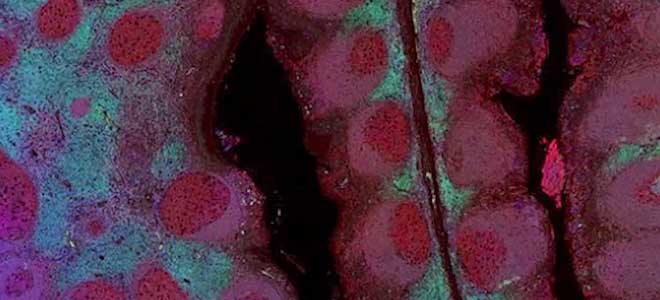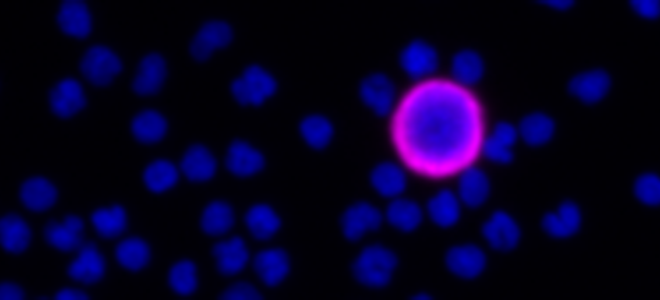Circulating Tumor Cells: Investigating the Circulating Tumor Cell (CTC) to Understand Cancer Cell Progression
It is estimated that more than 90% of cancer mortality is caused by distant metastasis1. Investigating circulating tumor cells (CTCs) provides important tumor information since these cells are already part way to metastasis; broken free from the tumor mass, transited through interstitial tissues, and intravasated into the vasculature. Understanding and counteracting this process is essential to managing cancer.
What Circulating Tumor Cells (CTCs) Can Tell Us About Cancer Metastasis
CTCs are fundamental to the pathophysiology of tumor metastasis and progression:
- All distant tumor metastases have their origin in CTCs because a cancer cell must enter the blood stream to spread to a distant site
- CTCs represent a population of cells that can be investigated for mechanisms of treatment resistance
View recent publications using RareCyte solutions for CTC analysis →
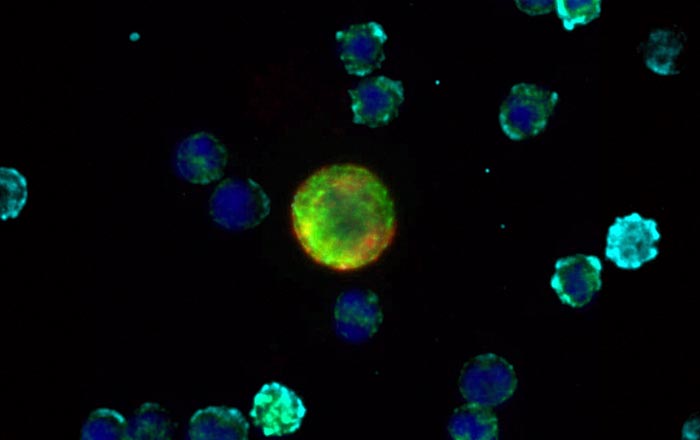
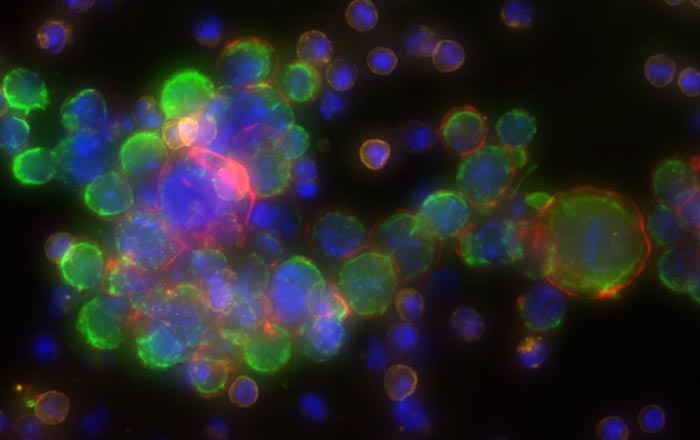
A CTC-based liquid biopsy collects and tests tumor cells with both metastatic and resistance potential. The incidence and number of detected CTCs is associated with cancer type and stage – increasing with more advanced disease.
- For example, in metastatic cancers, the incidence of CTC-positive patients can be greater than 50%2
- Learn more about CTCs in research →
Circulating Tumor Cell (CTC) Enumeration in Cancer Research
CTC enumeration was demonstrated to be prognostic of outcome nearly two decades ago3. Advances in CTC technology now allow interrogation of cancer phenotypes and likelihood they might be responsive to therapeutics.
- Since CTCs contain intact whole cancer genomes, isolating viable CTCs detected during therapy facilitates study of mutational profiles of resistance
- Identification, characterization and molecular analysis of CTCs will advance the capacity of liquid biopsy to meet the needs of twenty-first century medicine
- Circulating tumor cell enumeration enables more effective prognostic testing and ctc count assesses earlier therapeutic responses of advanced disease
- Testing for circulating tumor DNA (ctDNA) examines a patient’s blood to detect DNA fragments from cancer cells enabling the identification of minimal residual disease through testing.
The RareCyte Liquid Biopsy platform for Circulating Tumor Cell (CTC) analysis
RareCyte’s liquid biopsy platform integrates blood collection through imaging and single cell retrieval.
- Identification and enumeration with high analytic sensitivity and specificity
- Quantitative assessment of up to two user-defined cytoplasmic or cell surface protein biomarkers
- DNA sequencing on individual or pooled CTCs
Explore the Liquid Biopsy platform
References on Cancer Metastasis and CTCs
Chaffer CL, Weinberg RA. A perspective on cancer cell metastasis. Science. 2011;331(6024):1,559–564. doi:10.1126/science.1203543
- Vasseur A, Kiavue N, Bidard FC, et al. Clinical Utility of Circulating Tumor Cells: an Update. Mol. Oncol. 2021;15, 1647–1666. doi:10.1002/1878-0261.12869
- Cristofanilli M, Budd GT, Ellis MJ, et al. Circulating Tumor Cells, Disease Progression, and Survival in Metastatic Breast Cancer. N. Engl. J. Med. 2004;351, 781–791. doi:10.1056/NEJMoa040766



